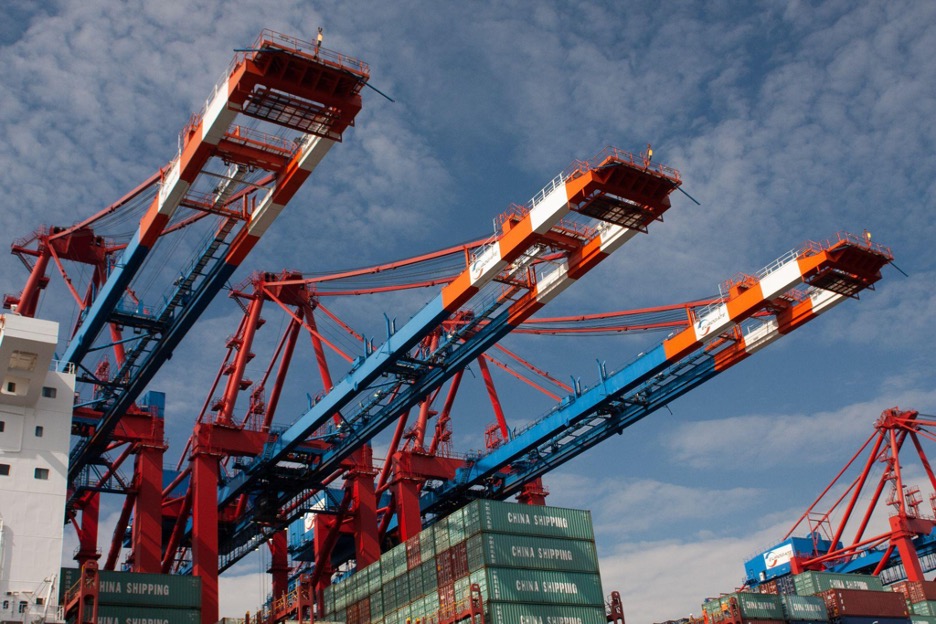What’s happening
International trade is a key source of economic prosperity. Regional trade blocs are groups of countries that have formed a regional economic alliance in order to promote trade and economic cooperation within the region. Regional trade blocs are often formed as a way to reduce barriers to trade and promote economic integration among member countries. It is becoming more and more likely that rising nationalism, protectionism, territorial expansion, and a new form of Cold War typified by conflict over the spheres of influence of major countries will take over globalization. Recent developments have sparked new discussions on supply chain reduction and resilience-building. Some researchers and observers anticipate that deglobalization will continue to grow. North American, European, and Asian supply chains are using more local suppliers. The majority of trade in Asia and Europe is already intra-regional. Up until the COVID-19 pandemic started in February 2020, the trends were fairly steady. Since the pandemic started, imports from nations within the same continent have increased in proportion, while the average distance traveled by imports has decreased noticeably. Pandemic-related disruptions have clearly hit international supply chains.
The pandemic and geopolitical tension are likely to continue to have a significant impact on trade and globalization in the years to come. It is important for businesses to be aware of these trends and adapt their strategies accordingly.
The pandemic has forced factories to close in many countries. Because of this, the supply of items has decreased, which has raised prices. Additionally, it has caused port congestion in numerous nations. This is due to a shortage of people who can load and unload ships as well as a backlog of ships that need to dock. Prices have increased as a result of the delays in delivery caused by port congestion. Costs for transportation have increased as a result of the pandemic. This is due to both the lack of available shipping containers and the rising price of gasoline. Consumer prices have increased as a result of rising transportation expenses. This has led to shortages of goods and higher prices for consumers. It has also led to increased demand for domestically produced goods and services as consumers have become more concerned about the security of their supply chains resulting in increased production and employment in some countries.
Geopolitical tensions have led to increased protectionism and nationalism. Protectionism is a policy that aims to protect domestic industries from foreign competition. This can be done through a variety of measures, such as tariffs, quotas, and subsidies. Nationalism is the belief that the nation is the supreme unit of political organization and that national interests should be placed above all others. This can lead to a sense of isolation and distrust of foreigners, which can make it difficult to cooperate on issues such as trade and climate change. The rise of protectionism and nationalism is a challenge for the global economy, and it reinforces the trend toward de-globalization, as well as lead to higher prices, fewer choices, and less innovation.
The regional trade blocs will continue to grow in importance. This is because they can provide businesses with a more stable and predictable trading environment, which can encourage investment and trade. Increased protectionism and nationalism can make it more difficult for businesses to trade on a global scale. Additionally, the rise of automation and artificial intelligence can lead to a decrease in the need for global trade as businesses can produce goods and services locally or domestically. Thus, the process of de-globalization will continue.
A hybrid scenario in which some parts of globalization advance while others deteriorate is also conceivable. For instance, it is feasible that regionalization will increase while global trade will continue. Also likely is the continuation of international cooperation with a stronger regional emphasis.
The efforts of the US government, other influential entities, and international businesses are helping to mitigate the negative effects of de-globalization with regional trade blocs. The US government is working to promote free trade agreements with other countries. Free trade agreements can help reduce barriers to trade and investment, which can help promote economic growth and prosperity. The government is also investing in infrastructure projects such as roads, bridges, and airports. This can help make the US economy more competitive and attract investment from foreign businesses. The Asia-Pacific Economic Cooperation (APEC) Forum consists of 21 countries that are committed to promoting free trade and economic cooperation in the Asia-Pacific region. APEC has been successful in reducing tariffs and other barriers to trade in the region. The European Union (EU) and the World Trade Organization are working to resolve trade disputes and promote free trade between countries. The EU has a single market, which allows goods, services, capital, and people to move freely within the bloc. It has also been successful in reducing tariffs and other barriers to trade between member countries.
It’s crucial to understand that not all regional trade blocs’ effects on globalization are negative. Regional trade blocs, for instance, may encourage economic expansion and development inside the bloc, which may result in a rise in demand for goods and services from other nations. Regional economic blocs can also aid in fostering peace and stability inside the region, which can improve the atmosphere for international trade.


Resources :
- Will Covid-19 Have a Lasting Impact on Globalization? https://hbr.org/2020/05/will-covid-19-have-a-lasting-impact-on-globalization
- Regionalization vs globalization: what is the future direction of trade? https://www.weforum.org/agenda/2021/07/regionalization-globalization-future-direction-trade/
- The Specter of Deglobalization https://online.ucpress.edu/currenthistory/article/122/840/3/195020/The-Specter-of-Deglobalization


